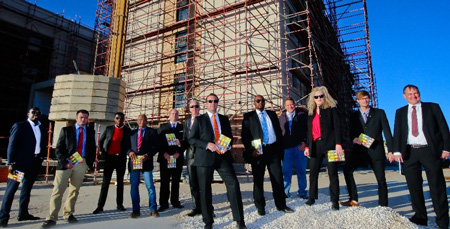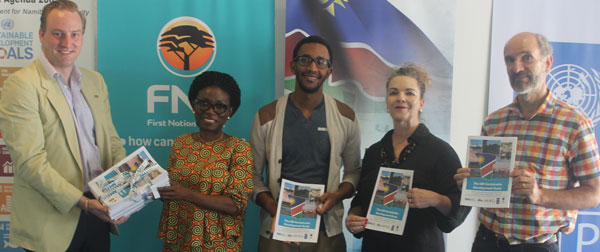
Construction needs to start immediately after lockdown ends – CIF

“The construction industry has been suffering huge losses already over the last four years. Since 2015 the average annual contraction of the construction sector was 12%, with a massive 34.4% contraction in 2016. This had led to extensive business closures in the industry. Four years ago the industry contributed 7.2% to Namibia’s GDP. This has dropped to 2.7% in 2019.”
Highlighting the concerns of an industry that is still firmly in the grip of the very prolonged recession, the consulting General Manager of the Construction Industries Federation of Namibia (CIF), Bärbel Kirchner said “since 2016 the construction sector has made huge losses, which has left all the companies in the sector extremely vulnerable, many of which are at the brink of collapse. During the last four years many businesses have closed as a result of reduced spending by government as well as the lack of domestic investment by the private sector and [lack of] foreign investment.”
Expressing her appreciation for the national measures to contain COVID-19, Kirchner said she is still extremely worried that many contractors will not survive the financial effect of the lockdown.
“We [as an industry] are extremely worried about the impact on our businesses that we can foresee now as result of measures taken in response to Covid-19. We therefore feel that through commencing with work soonest and a carefully deliberately strategic approach we can stop the tide of further increasing unemployment,” she said.
A recent survey among CIF members revealed that many contractors will have to close down regardless of any financial support from the government for those employed in construction.
Responses by 61 members of the CIF to the survey indicate that 68% made a loss in the 2019/20 financial year. Year-to-date 72% has made a loss. Current expenditures are financed by using profits (17.65%); overdrafts (56.88%); loans (5.88%) and owners’ reserves (13.73%).
As a solution, Kirchner proposes that the entire construction sector is classified as an essential service so that all contractors can start working immediately. “The sector is a vital sector and can also be a catalyst for growth in other sectors, as is relevant in so many global economies.”
Recommending that concrete action is taken immediately, Kirchner said VAT refunds together with expedited payment for completed work, can already make a huge difference.
“Those members that responded to our survey said that they had about N$8.4 million outstanding in VAT refunds; and N$192 million in unpaid invoices. Speeding up payment will help the cashflow position of some companies. Through a careful, strategically mustered approach by actively engaging and focusing on the Namibian construction sector, we can make big strides, saving not only the industry but also securing the survival of parts of our economy.”
If the industry at large collapses, Namibia will no longer have the capacity to build its own infrastructure, Kirchner warned.









































